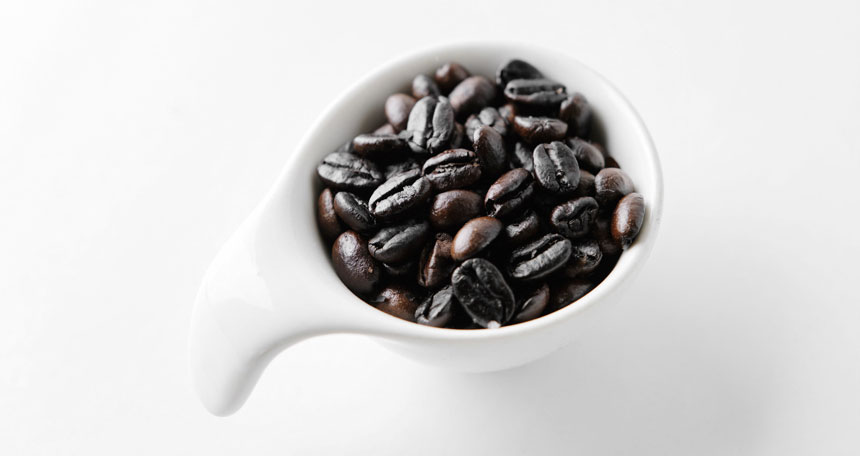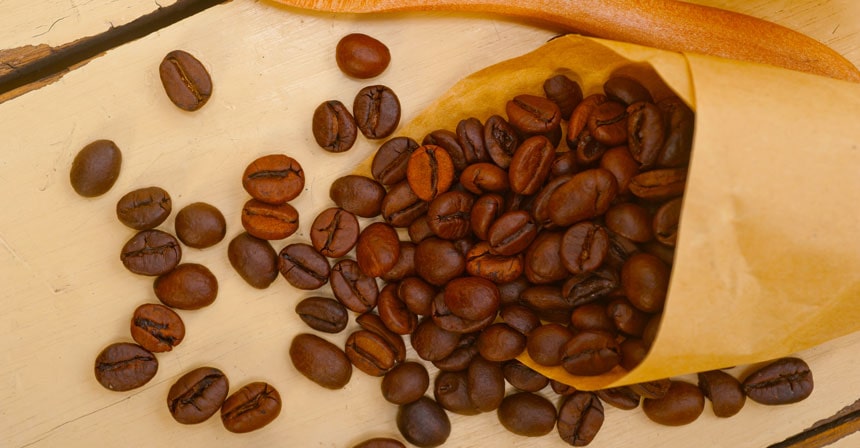Choosing the right beans is essential for crafting a perfect cup of espresso. Though there are many types of coffee beans available, not all are created equal. Some beans are better suited for the process, and their unique flavor profiles can enhance the taste of your espresso while others can completely ruin it. In this article, we’ll discuss what types of beans are best for espresso and why you should choose them.
So, whether you prefer a bold and robust flavor or a smooth and mellow taste, read on to discover the best coffee beans for espresso for your perfect shot.
But before diving into the specifics of which beans are best for espresso, it’s important to understand the difference between espresso beans and coffee beans.
Espresso Beans vs Coffee Beans: Which One?
While both beans come from the same coffee plant, there are subtle differences in the way they’re roasted and processed. Espresso beans are roasted longer and at a higher temperature than coffee beans. The extended roasting time caramelizes the natural sugars in the bean, resulting in a darker bean with a shiny, oily surface and richer, bolder flavor. [1]
On the other hand, Coffee beans are usually roasted for a shorter period at a lower temperature, resulting in a lighter brown bean with a dry surface. This roasting method preserves the bean’s natural acidity, resulting in a brighter, more vibrant flavor.
Additionally, Espresso beans are ground much finer than coffee beans. The finer grind allows for a slower extraction process, which results in a more concentrated flavor. Espresso machines also require a finer grind to create the necessary pressure for the extraction process. Coffee beans, on the contrary, are typically ground coarser and require less pressure to extract the flavor, not very good for espresso.
Due to this difference in the ground size and roasting process of Espresso beans and coffee beans, they have different flavor profiles. Espresso beans have a bold, rich, and full-bodied flavor with a slight bitterness and a smooth finish. While Coffee beans have a brighter, more acidic taste, with a range of flavor notes depending on the origin and roast level.
Hence, Coffee beans can have a nutty, fruity, or chocolatey taste, while espresso beans have a more intense, concentrated flavor. However, this doesn’t mean that coffee beans can’t be used for espresso, as they can still produce a decent shot. It all comes down to personal preference and the type of flavor profile you’re looking for.
What type of beans you can use to make Espresso?
Dark Roast Blends
Dark roast blends are a popular choice for making espresso because they are roasted longer, resulting in a bold, full-bodied flavor that pairs well with milk. These beans are often sourced from different regions to create a well-rounded, balanced flavor profile. Some popular dark roast blends for espresso include Italian, French, and Spanish roasts.
Medium Roast Single-Origin Beans
Medium-roast single-origin beans can also be an excellent choice for making espresso. These beans are typically sourced from a single region, which can create a unique flavor profile with distinct notes of terroir. Medium roast beans are roasted for a shorter period than a dark roast, resulting in a brighter, more complex flavor profile with subtle notes of fruit and acidity. Some popular medium roast single-origin beans for espresso include Ethiopian and Kenyan.
Specialty Blends

Specialty blends are another option for making espresso. These blends are often created by expert roasters who aim to produce a unique flavor profile that stands out from traditional dark and medium roast blends. Specialty blends can include a combination of dark and medium roast beans or a mix of different single-origin beans.
Freshness
Regardless of the type of coffee beans you choose for making espresso, freshness is crucial. Freshly roasted beans will have the most robust flavor and aroma. It’s important to buy beans from a reputable source and use them within two to three weeks of the roast date.
Which are the best Italian coffee beans for espresso?
Grinding
It may not seem important to you but grinding the beans just before brewing is also essential for producing the best espresso. The ideal grind for espresso should be fine and consistent, allowing for a slow and steady extraction. It’s recommended to invest in a quality burr grinder for the best results.[2]
Final Verdict
Ultimately, the best coffee beans for espresso come down to personal preference and experimentation. It’s worth trying a variety of blends and origins to find the flavor profile that suits your taste buds the most. With so many options in the market from dark roasted to medium and specialty blends, there is a taste for everyone.
FAQs
The best coffee to use for an espresso machine is dark roast blends or medium roast single-origin beans. Freshness is also crucial, so be sure to use recently roasted beans and grind them just before brewing. So what type of coffee beans you want to use depends on your personal taste and preferences.
Many people seem to ask the question: Can I use coffee beans for espresso? Technically, you can use regular coffee beans for espresso, but it’s not recommended. Espresso requires a fine, consistent grind that is difficult to achieve with regular coffee beans. Using coffee beans specifically labeled for espresso will result in a better-tasting shot.
Yes, you can grind regular coffee beans for espresso. However, it’s important to note Espresso requires a fine, consistent grind, which is a little challenging to achieve at home. It’s best to use pre-grounded beans or the ones specifically labeled for espresso.
References



